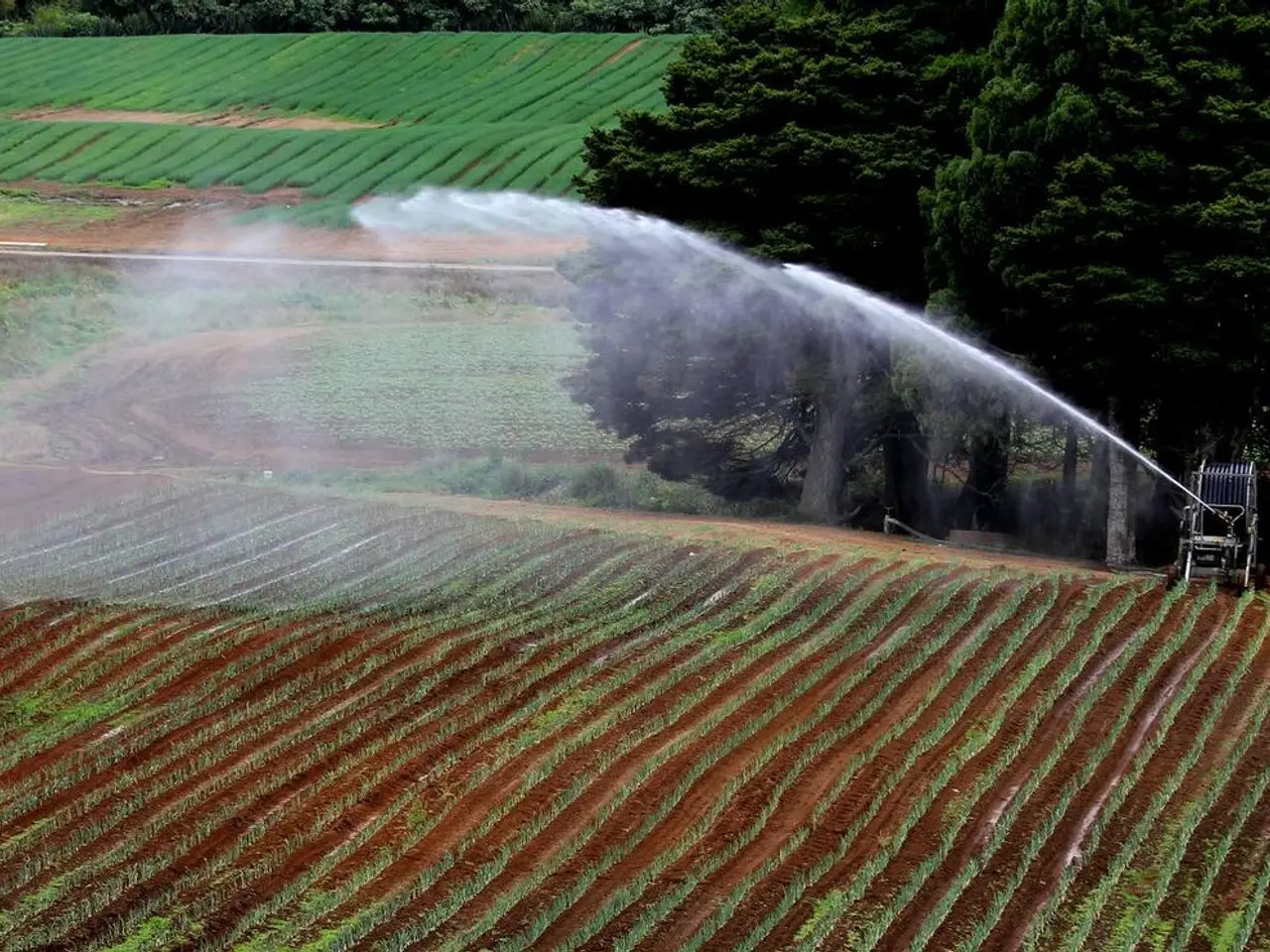Enhanced agricultural production and unity in the Democratic Republic of Congo
In the heart of the Masisi region, the Democratic Republic of Congo, a transformative project funded by the German Federal Ministry for Economic Cooperation and Development (BMZ) is making a significant impact on the lives of its residents. One such individual is Masengesho Munyakazi Divine, a 33-year-old woman living in the village of Kirumbu.
Masengesho, along with her husband and three children, is part of a community that has been affected by recurring conflicts over the past 20 years. However, through the efforts of Welthungerhilfe, a global organization working to end hunger and poverty, Masengesho's life has taken a turn for the better.
The project, designed to make the population more resilient and improve their nutritional situation, includes measures to strengthen community structures, repair water and sanitation infrastructure, and increase agricultural production. For Masengesho, this has meant receiving seeds, tools, and training on nutrition and cultivation techniques.
Masengesho is now a proud member of a producer group that supports participants with materials and seeds. With the profits from farming and a small business selling plastic shoes, she has been able to provide for her family's livelihood. She has even used the profits to buy two cows, ensuring her family has enough food and allowing her to sell surplus harvest.
But the project's benefits extend beyond just economic empowerment. Masengesho has also seen improvements in social cohesion and teamwork in her community. She is part of a savings and credit group, a system that enables members to save money, particularly women, who can invest this money in their own small businesses, thereby strengthening their financial independence.
The project also encourages women's active participation in committees and promotes their voice within the community and family. Masengesho is a testament to this, as she proudly reports that her group has set up a contribution system that fosters mutual support and financial independence.
In addition to agriculture and financial empowerment, the project provides training on storage logistics, processing, and marketing. Courses on carpentry, bicycle repair, food processing, electrical, and IT are also offered, providing opportunities for diversified income-generating activities.
Welthungerhilfe has rehabilitated water supply points and latrines, and trained 120 WASH (Water, Sanitation, and Hygiene) facilitators to implement hygiene trainings in 9 communities. This not only improves the overall health and well-being of the population but also contributes to the project's goal of improving the nutritional situation.
Women's groups are organized and trained in improved nutrition and dietary habits as part of the project. Masengesho, being one of 3,000 participants, is making a positive impact on her family's nutritional situation.
For more detailed information about the Masisi project and its impact on women like Masengesho Munyakazi Divine, consult Welthungerhilfe’s official reports or project documentation related to the DRC. The current data sources do not cover this topic directly.
- Masengesho Munyakazi Divine, a resident of Kirumbu village in the Masisi region of the Democratic Republic of Congo, has experienced transformative changes in her life due to a project funded by the German Federal Ministry for Economic Cooperation and Development (BMZ) and spearheaded by Welthungerhilfe.
- Despite the village's history of recurring conflicts over the past 20 years, Masengesho's life has been significantly improved by this initiative designed to enhance resilience and nutritional status.
- Through the project, Masengesho received seeds, tools, and training on nutrition and cultivation techniques, allowing her to become a productive member of a producer group.
- The profits from farming and a small business selling plastic shoes have enabled Masengesho to provide for her family and buy two cows, improving their food security.
- Beyond economic empowerment, the project has catalyzed social cohesion and teamwork in the community, as illustrated by Masengesho's participation in a savings and credit group.
- The project also provides training on storage logistics, processing, marketing, and various skills, opening opportunities for diversified income-generating activities.
- To further improve the overall health and nutritional status of the population, Welthungerhilfe has rehabilitated water supply points, latrines, and trained WASH facilitators who offer hygiene training in 9 communities, including women's groups focused on improved nutrition.




